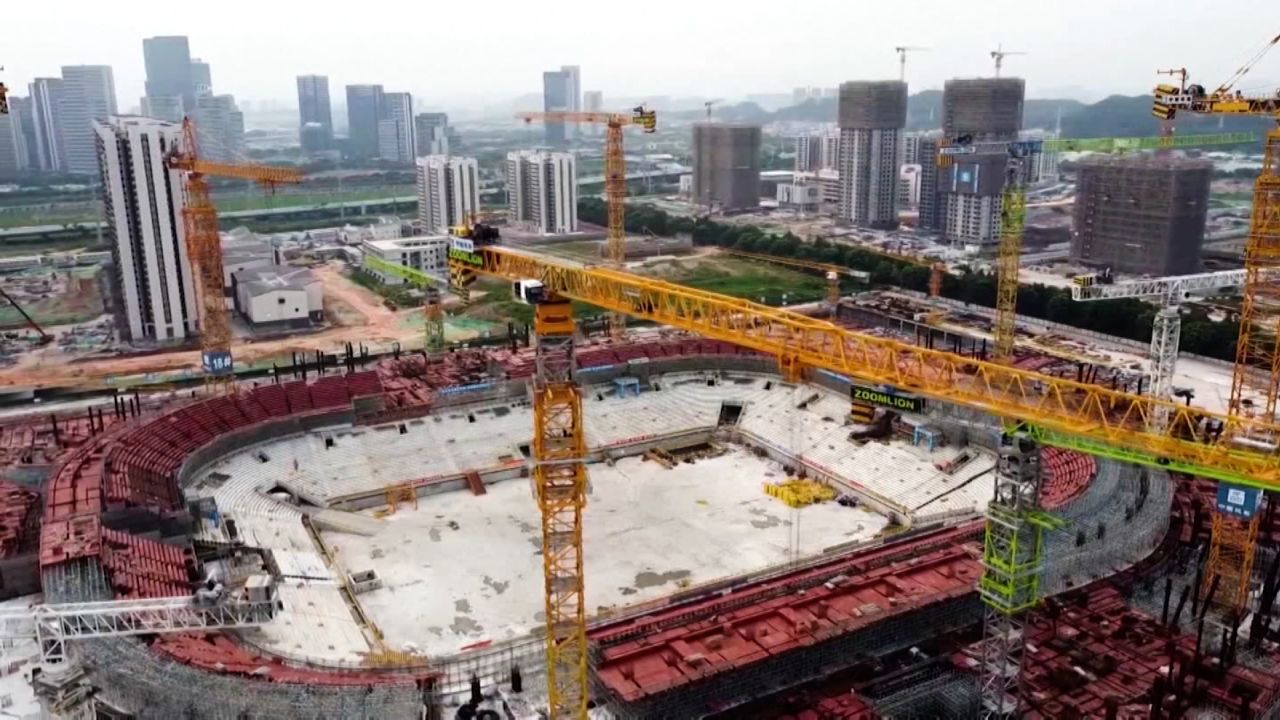Embattled Chinese developer Evergrande Group said Thursday that Chinese authorities suspected its chairman of “crimes” and that shares in the company would remain suspended until further notice.
Trading in the shares of Evergrande and two subsidiaries was halted in Hong Kong earlier Thursday, stoking fears about its ability to restructure its mammoth debt and stave off a liquidation of the business.
In a filing to the Hong Kong stock exchange issued after the market closed, Evergrande said it had been notified by the “relevant authorities” that its chairman Hui Ka Yan had been subject to “mandatory measures in accordance with the law due to suspicion of … crimes.”
It gave no further details. Under the Chinese legal system “mandatory” or “compulsory” measures can include detention and formal arrest.
Citing people with knowledge of the matter, Bloomberg had reported Wednesday that Hui — once one of China’s richest men — was being monitored at a designated location after being taken away by Chinese police earlier this month.
Bloomberg said the billionaire had been placed under residential surveillance, meaning he was unable to leave the location, or meet or communicate with others without approval.
Evergrande had warned Sunday that its offshore debt restructuring plan may be in trouble because of a regulatory probe into its main subsidiary in mainland China. Meetings with creditors were postponed.
The announcements came just weeks after news emerged that Chinese police had launched their first criminal probe into Evergrande since it defaulted on its debt nearly two years ago. Chinese police in Shenzhen said they had detained some staff at Evergrande’s wealth management unit after it failed to repay investors. The unit operates in China’s “shadow banking” sector, raising funds on the promise of high returns and funneling them into real estate projects.
The world’s most indebted real estate developer had total liabilities worth $328 billion at the end of June. Its stock had been plunging all week as the attempts to restructure its debts were put on hold. The stock has now fallen more than 80% since it resumed trading in August after a 17-month suspension.
Hengda Real Estate, Evergrande’s flagship unit in mainland China, said in a statement on Monday that it was still working with all parties to resolve the debt risks, after it missed payments on a 4 billion yuan ($547 million) bond.
Last month, investors breathed a small sigh of relief when Evergrande reported a significant narrowing in its losses for the first half of the year. That was thanks to a rise in revenue because of a “short boom” in China’s property market earlier this year, the company said.
But the news since has been relentlessly negative, and a growing number of investors are reportedly seeking to wind up the company if it is unable to come up with a new survival plan soon.
Previously China’s second biggest real estate company, Evergrande’s default in 2021 ignited a crisis in the property sector that continues to weigh on the wider economy.
Evergrande has been trying to implement a government-supervised debt restructuring. It unveiled a multi-billion dollar plan to make peace with its international creditors and recently filed for bankruptcy protection in the United States as part of the process.
If the offshore debt restructuring fails, and Evergrande is unable to reach a new deal with its creditors, it could face liquidation, where its assets are sold and it stops all operations.









